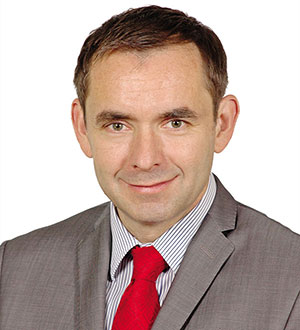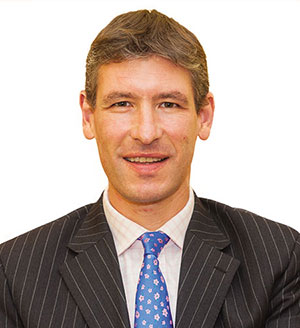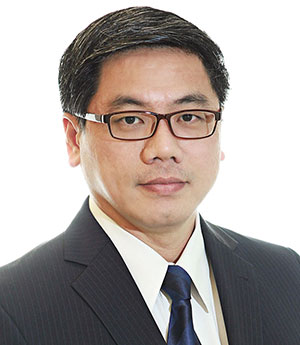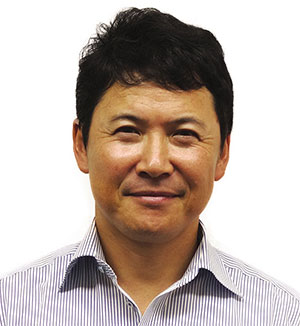Looking back on 30 years of Doi moi

| Jean-Noël Poirier - French Ambassador to Vietnam |
|
One of the most outstanding changes concerns poverty reduction. From 1990 to 2013, GDP has been extensively multiplied. In addition, whereas half of the population used to be classified under the poverty threshold, today the ratio has been reduced to less than 12 per cent. Vietnam has also taken responsibility as a regional actor. In the past, Vietnam committed itself to a process of peaceful political reconciliation in the region. Its two-decade long involvement with neighbouring countries in the ASEAN bloc, reflecting its growing role in global trade, is also a remarkable achievement. Vietnam participated in the G20 Summit in 2010 when it held the Chair of the ASEAN bloc. On December 31, 2015, the launch of the new ASEAN Economic Community marked a new step forward for all ASEAN members, and will be a source of new opportunities for Vietnam. This is a positive asset for peace and stability, which France welcomes. By opening up the country to foreign investment and technology, Vietnam normalised its relations with international organisations and became more and more integrated within the international economy. In 2015, Vietnam made a major breakthrough on the path to this integration by signing a number of free trade agreements, and concluding the Trans-Pacific Partnership negotiations. With regards to Europe, the conclusion of negotiations for the EU-Vietnam Free Trade Agreement (FTA) was formally announced during Prime Minister Nguyen Tan Dung’s visit to Brussels on December 2, 2015. Through this FTA, we hope to deepen our economic co-operation. France has accompanied Vietnam’s opening and modernisation during its earliest stage. In 1993, France was one of the very first partners to facilitate the integration of Vietnam within the international financial community. We have built a unique relationship based on mutual trust and friendship via a large number of co-operation agreements in various fields like education, science, culture and governance. The implementation of the strategic partnership, signed in France in September 2013, is an opportunity to open a new chapter in this relationship and brings our dialogue to new heights. A broader connection with the global economy also means a larger exposure to global challenges today. France is keen on working with Vietnam to tackle our common challenges, such as climate change and sustainable development. We commend Vietnam’s participation in the recent COP21 conference in Paris and we are looking forward to maintaining our close working relationship on this issue. Sustainable cities and infrastructure are also a major challenge in Vietnam’s future. France will always stand side-by-side with Vietnam to face these problems. |
| Giles Lever - British Ambassador to Vietnam |
|
The move towards a market-driven economy has yielded important results. Vietnam’s per capita income has risen more than twenty-fold, and the country’s competitiveness ranking improved to 56/140 in 2015-2016 from 77/104 in 2004-2005. What is also impressive is that Vietnam’s growth has been inclusive, which is not always the case in emerging economies. Today, Vietnam’s extreme poverty rate has fallen to 3 per cent, down from over 50 per cent in the early 1990s. Recent efforts to restructure the economy have improved macro-economic stability and restored growth to a level that reflects Vietnam’s true potential. Vietnam is now an attractive destination for international businesses, including British companies, partly because of its strong performance this year compared to other regional economies. This is partly because of its tremendous progress in integrating into global markets, with trade at 170 per cent of GDP, which is exceptionally high by global standards. However, there are several pressing issues which Vietnam still needs to tackle. The declining trend of productivity growth is a concern. Steady improvements in productivity growth were key to the transformation of countries like South Korea. To strengthen Vietnam’s medium-to-long-term chances of sustaining the progress of the last 30 years and catching up with others in the region, even more ambitious reforms are needed to promote human resources development. Vietnam needs to develop a stronger research and development (R&D) culture, strengthen market institutions, reduce state ownership in the economy, and attract more international and private sector investment in infrastructure. The push for greater market participation is still the right way to go, and can be supported by more transparent and evidence-based policy making, and better regulation, as well as a stronger court system and competition authorities. Vietnam’s deeper global integration, as evidenced by its participation in the Trans-Pacific Partnership and the EU-Vietnam Free Trade Agreement, should strengthen support for these reforms, and the UK is committed to supporting Vietnam in this process. |
| Bruno Angelet - Ambassador and Head of the EU Delegation to Vietnam |
|
Compared to the Vietnam I knew 20 years ago, socio-economic achievements since the launch of Doi moi have been impressive, and people’s living conditions in general have improved remarkably. When I visited remote areas in localities like Lai Chau or Lao Cai, I understood that the people’s first priorities were roads, clean water, and electricity. These are also areas where a lot of developments have been taking place. Good policies with proper attention for the conditions in poorer localities ensured inclusive development and improved social security. Vietnam has been among the best-performing nations on poverty reduction, while being successful in ensuring macro-economic stability and industrial development. The policies have also contributed to making Vietnam one of the world’s largest exporters of rice, pepper, rubber, cashew, and aquatic products. Currently, Vietnam is reaching a new stage in its development process. In addition to the great impetuses such as political and social stability, large exports, the attraction of large-scale foreign direct investment, and the people’s strong determination to drive the country forward, Vietnam is also facing some stiff challenges which will not be easily tackled overnight. For example, a significant number of young Vietnamese studying abroad do not return home, leading to a loss of Vietnam's most valuable human capital. This urgently needs to be addressed through proper policies and incentives to bring talent back home. Also, Vietnam is one of the ASEAN countries with the highest export-to-GDP ratios. About 70 per cent of the country’s export turnover stems from foreign direct investment. The key question here is how to increase Vietnam's home-based industries’ contribution to exports and added value within the economy. Vietnam also suffers from weak local supporting industries. This has forced firms to import materials from foreign markets at higher prices. Additionally, Vietnam will have to ensure a more sustainable energy sector in order to preserve its competitiveness, while at the same time reduce greenhouse gas emissions and pollution for the good of its people. Vietnam also achieved great successes in economic integration through the participation in a raft of free trade agreements (FTA), and has recently concluded negotiations on the EU-Vietnam FTA. Upon implementation, this deal will usher in many opportunities for Vietnam and the EU to boost trade and investment co-operation. As a leading trade partner of Vietnam, and the third largest foreign investor in Vietnam since 2015, European member states and institutions are Vietnam’s increasingly important partners, willing to support the country as it addresses new challenges. Vietnam is also a very attractive partner for us within ASEAN. We are committed to continuing to support Vietnam’s development via our comprehensive partnership and many co-operation programmes. Together, Vietnam and Europe have a bright future ahead. |
| Ng Teck Hean - Singaporean Ambassador to Vietnam |
|
Economically, the country has taken steps to address some of the problems in its economy. It is also becoming more integrated within the global community through the establishment of strategic partnerships with various countries, including Singapore. It is also interested in regional economic integration through free trade agreements (FTAs) such as the EU-Vietnam FTA and the Trans-Pacific Partnership. This is a critical juncture in Vietnam’s developmental path. The 12th National Party Congress will chart the future direction of the country for the next five years. Vietnam will need to enact further economic reforms in order to take full advantage of the opportunities brought about by Vietnam’s integration into the global economy. These include efforts to restructure the economy, addressing problems in the state-owned enterprise and banking sectors, and increasing labour productivity. These reforms will further increase Vietnam’s economic competitiveness and its attractiveness as an investment destination for foreign companies, including those from Singapore that are keen to be part of Vietnam’s growth story. |
| Nagai Katsuro - Economic Minister with the Japanese Embassy in Vietnam |
|
The Doi moi policy has enabled the country to achieve rapid and sustainable economic growth, which has helped millions of people out of the poverty trap. In this sense, the results of the Doi moi policy over the past 30 years are remarkably impressive, and the Japanese government – as the largest official development assistance (ODA) provider in Vietnam – is humbly proud that financial assistance from the people of Japan has contributed to Vietnam’s socio-economic development. However, the sources of growth are still mainly dependent on abundant and cheap labour, which will be depleted over the years to follow. To drive the next wave of long-term growth, some structural problems in the economy need to be addressed. We understand that the government of Vietnam fully recognises these problems and is taking all necessary measures to tackle them, focusing on the three pillars of economic restructuring: the reform of state-owned enterprises, financial sector reform, and public investment reform, as stated in the Socio-economic Development Plan (2011-2015). Given the fact that Vietnam will go through further and deeper global economic integration by the entry into force of new free trade agreements (FTAs) such as the Trans-Pacific Partnership, as well as the further tariff reductions brought about by existing FTAs, it is high time for the government to accelerate the speed of its economic restructuring agenda. Vietnam should take advantage of the momentum created by these FTAs as well as by minimising negative effects upon certain sectors, such as the automobile industry. This year will mark another milestone in the country’s development, as the Communist Party of Vietnam convenes its 12th National Congress to review the past 30 years of Doi moi and to introduce new policies to guide the country’s future development. In addition, the new socio-economic development period (2016-2020) will start under the government’s new leadership. We hope that the new government steadily continues to implement the economic restructuring plan to establish a base for long-term sustainable growth by using this political and economic momentum. Japan, based on the extensive strategic partnership between the two countries, is strongly committed to supporting socio-economic development in Vietnam by mobilising all the economic co-operation tools at our disposal. |
What the stars mean:
★ Poor ★ ★ Promising ★★★ Good ★★★★ Very good ★★★★★ Exceptional
Latest News
More News
- Foreign fruits flood Vietnamese market (December 09, 2025 | 13:22)
- Vietnam’s fruit and vegetable exports reach $7.8 billion in first 11 months (December 05, 2025 | 13:50)
- Vietnam shapes next-generation carbon market (November 26, 2025 | 15:33)
- PM urges Ho Chi Minh City to innovate and remain Vietnam’s economic locomotive (November 26, 2025 | 15:29)
- Experts chart Vietnam's digital finance path: high hopes, high stakes (November 14, 2025 | 10:56)
- Vietnam’s seafood imports surge 30 per cent in first 10 months (November 10, 2025 | 19:35)
- Vietnam’s durian exports hit $1 billion milestone (October 30, 2025 | 17:41)
- Beyond borders: Sunhouse and new era of Vietnamese brands on Amazon (October 28, 2025 | 10:46)
- Record-breaking trade fair set to open in Hanoi (October 15, 2025 | 15:59)
- Timber sector seeks solutions to VAT refunds (October 14, 2025 | 18:58)

 Many positive changes have taken place over the past 30 years in Vietnam, including spectacular results in socio-economic development in the process of Doi moi since 1986.
Many positive changes have taken place over the past 30 years in Vietnam, including spectacular results in socio-economic development in the process of Doi moi since 1986. I worked in Vietnam from 1993-1997, so returning to the country in this role after 17 years gives me a clear perspective on how far Vietnam has progressed during the Doi moi era.
I worked in Vietnam from 1993-1997, so returning to the country in this role after 17 years gives me a clear perspective on how far Vietnam has progressed during the Doi moi era. I first served in Vietnam as Deputy Head of Mission at the Embassy of Belgium in Hanoi during 1994-1998, and came back to Vietnam as the Ambassador of Belgium from 2011 until July 2015. I took up my new mission as the Head of the EU Delegation in October 2015.
I first served in Vietnam as Deputy Head of Mission at the Embassy of Belgium in Hanoi during 1994-1998, and came back to Vietnam as the Ambassador of Belgium from 2011 until July 2015. I took up my new mission as the Head of the EU Delegation in October 2015. Vietnam has made significant progress throughout its 30 years of Doi moi. Following its accession to the World Trade Organization in 2007 and the achievement of its middle-income country status in 2008, Vietnam has continued to make progress in many areas.
Vietnam has made significant progress throughout its 30 years of Doi moi. Following its accession to the World Trade Organization in 2007 and the achievement of its middle-income country status in 2008, Vietnam has continued to make progress in many areas.  Following the adoption of the Doi moi policy in 1986, Vietnam has undergone significant socio-economic reforms that have transformed the country from an underdeveloped, centrally-planned economy into a dynamic market-based and internationally integrated one.
Following the adoption of the Doi moi policy in 1986, Vietnam has undergone significant socio-economic reforms that have transformed the country from an underdeveloped, centrally-planned economy into a dynamic market-based and internationally integrated one.














 Mobile Version
Mobile Version